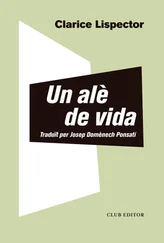We finally moved into the dining-room for a supper without the blessing of hunger. The sight of that table took us by surprise. This could not be for us… It was a table for men of good will. Who were the missing guests for whom this was really intended? We ourselves. So that woman gave of her best without discrimination? She happily washed the feet of the first stranger to appear. Fidgeting awkwardly, we stood there staring.
The table was covered with solemn abundance. Sheaves of corn had been piled up on the white table-cloth. And there were red apples, enormous yellow carrots, round tomatoes with skins ready to burst, juicy green courgettes, pineapples of a malign ferocity, tranquil, golden oranges, gherkins bristling like porcupines, cucumbers stretched tight over watery flesh, hollow red peppers that made our eyes smart — were all entangled in moist whiskers of maize, tinged with crimson like outlined lips. And bunches of grapes. The purplest of black grapes anxiously awaiting the moment to be crushed. Nor did they mind who should crush them — like the mistress of the household in times gone by. The tomatoes were not round for anyone: for the atmosphere, the circular atmosphere. Saturday was for anyone who might turn up. And the orange would sweeten the tongues of the first to arrive. Beside the plate of each unwanted guest, the woman who washed the feet of strangers had placed — without choosing or loving us — a sheaf of wheat, a bunch of fiery radishes or a red slice of water-melon with its glossy seeds. All broken up by the Spanish acidity of green lemons. In the earthenware jugs there was milk, as if it had been transported across a rocky desert with the goats. Wine that was almost black after all that pressing, shuddered in earthenware bowls. Everything was set before us. Everything cleansed of perverse human desire. Everything as it is and not as we would wish it to be. Simply existing and intact. Just as a field exists. Just as mountains exist. Just as men and women exist, but not us with our greed. Just as Saturday exists. Simply existing. It exists.
On behalf of nothing, it was time to eat. On behalf of no one, it was good. There was no dream. And along with the night, we gradually became anonymous, growing, rising above the height of possible existence. Then, like landed aristocracy, we accepted that table.
There was no holocaust: everything there was as anxious to be eaten as we were to eat it. Putting nothing aside for the following day, there and then I offered up my feelings to whatever had provoked them. This was a moment of existence for which I had not paid in advance with anxious waiting, the hunger that comes as we raise the food to our lips. For now we felt hungry, with an all-consuming hunger which took in everything, even the very crumbs. Those who were drinking wine kept a watchful eye on the milk. Those who were slowly sipping milk could taste the wine the others were drinking. And outside, the presence of God amongst the acacias. Acacias which existed. We ate. Like someone giving water to a horse. The carved meat was passed round. Any exchanges were homely and down to earth. No one spoke ill of anyone because no one spoke well of anyone. It was a harvest reunion and any social niceties were dispensed with. We ate. Like a horde of locusts, we gradually covered the earth. As absorbed as those who cultivate existence, by planting and harvesting, by living and dying and eating. I ate with the honesty of someone who does not belie what he is eating. I ate that food and not its name. God was never possessed by what He is. Brusque, contented and austere, the food was saying: eat, eat and share among you. Everything there was mine. This was the father’s table. I ate without affection, I ate without any feelings of compassion. And without giving way to hope. I ate without any trace of regret. And I was wholly deserving of that food. For I cannot always be my brother’s keeper, nor can I be my own keeper. Alas, I no longer love myself. I have no desire to forge life because existence already exists. It exists like the ground we tread. Without a word of love. In total silence. But your satisfaction is akin to mine. We are strong and we eat. Bread is love between strangers.
After some reflection I came to the rather startling conclusion that thoughts are as supernatural as past history after death. I simply discovered to my surprise that thinking is unnatural. I then reflected a little more and discovered that I have no day-to-day existence. It is a life-to-life existence and life is supernatural.
THE EGG AND THE CHICKEN (I)
In the morning the egg is lying on the kitchen table.
I see the egg at a single glance. I immediately perceive that I cannot be simply seeing an egg. Seeing an egg is always in the present: No sooner do I see the egg than I have seen an egg, the same egg which has existed for three thousand years. The very instant an egg is seen, it becomes the memory of an egg. The only person to see an egg is someone who has seen it before. Like a man who, in order to understand the present, must have had a past. Upon seeing the egg, it is already too late: an egg seen is an egg lost. A vision that passes like a sudden flash of lightning. To see the egg is the promise of being able to see the egg again one day. A brief glance which cannot be divided. Does thought intervene? No, there is no thought: there is only the egg. Vision is the essential faculty and, once used, I shall cast it aside. I shall remain without the egg. The egg has no itself. Individually, it does not exist.
It is impossible actually to see the egg. The egg is supravisible just as there are supersonic sounds the ear can no longer hear. No one is capable of seeing the egg. Can the dog see the egg? Only machines can see the egg. The windlass sees the egg. In ancient times an egg settled on my shoulder. Nor can anyone feel love for the egg. My love for the egg is suprasensitive and I have no way of knowing that I feel this love. One is unaware of loving the egg. In ancient times I was the depository of the egg and I walked on tiptoe in order not to disturb the egg’s silence. When I died, they carefully removed the egg inside me: it was still alive. Just as we ignore the world because it is obvious, so we fail to see the egg because it, too, is so obvious. Does the egg no longer exist? It exists at this moment. Egg, you are perfect. You are white. To you I dedicate this beginning. To you I dedicate this first moment.
To the egg, I dedicate the Chinese nation.
The egg is something in suspense. It has never settled. When it comes to rest, it is not the egg that has come to rest. A surface has formed beneath the egg. I vaguely glance at the egg in the kitchen in order not to break it. I take the greatest care not to understand it. It cannot be understood and I know that if I were to understand the egg, it could only be in error. To understand is proof of error. Never to think about the egg is one way of having seen it. Could it be that I know about the egg? Of course I know about it. Like this: I exist, therefore I know. What I do not know about the egg is what really matters. What I do not know about the egg gives me the egg itself. The Moon is inhabited by eggs…
The egg is an exteriorization: to have a shell is an act of giving. The egg exposes the kitchen. It transforms the table into a slanting plane. The egg exposes everything. Anyone who fathoms the egg, who can penetrate the egg’s surface, is seeking something else: that person is suffering from hunger.
The egg is the chicken’s soul. The awkward chicken. The stable egg. The startled chicken. The placid egg. Like a missile suspended in mid-air. For the egg is an egg in space. An egg against a blue background. Egg, I love you. I love you like something that does not even know it loves another thing. I do not touch it. It is the aura of my fingers that sees the egg. I do not touch it. But to devote myself to the vision of the egg would be to renounce my earthly existence which I continue to need, both yolk and white. Can the egg see me? Is it trying to fathom me? No, the egg only sees me. And it is immune to that painful understanding. The egg has never struggled to be an egg. The egg is a gift. It is invisible to the naked eye. From egg to egg, one reaches God Who is invisible to the naked eye. Perhaps the egg was once a triangle which turned so much in space that it ended up being oval. Is the egg basically a sealed jar? Perhaps the first jar to be modelled by the Etruscans? No. The egg originated from Macedonia. There it was designed, the fruit of the most deliberate spontaneity. On the sands of Macedonia a mathematician traced it out with a rod in one hand. And then erased it with his bare foot.
Читать дальше












